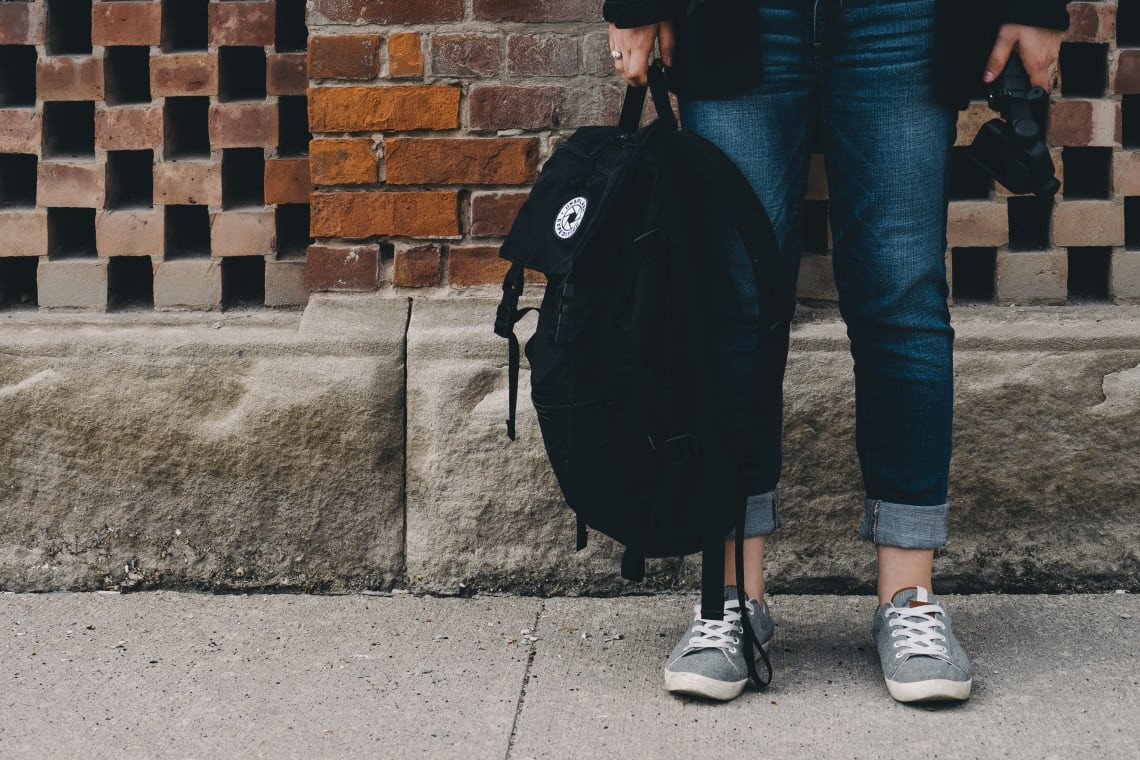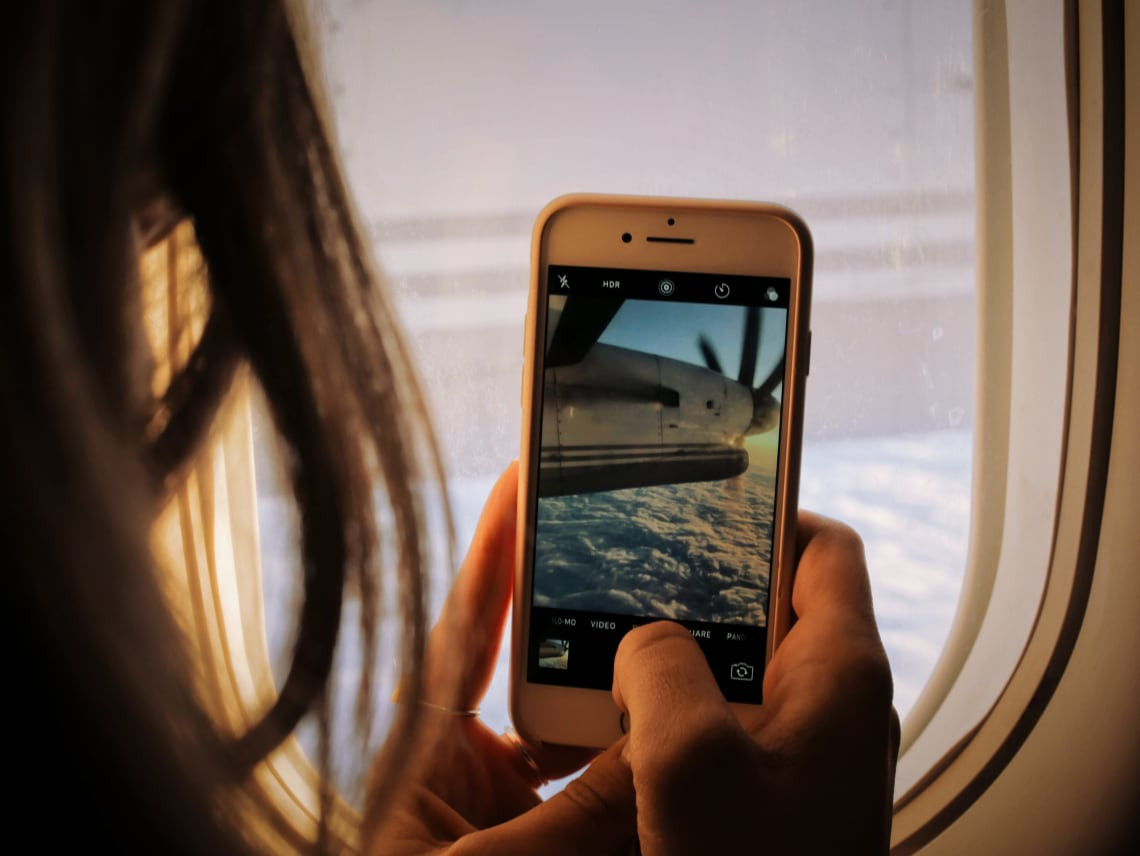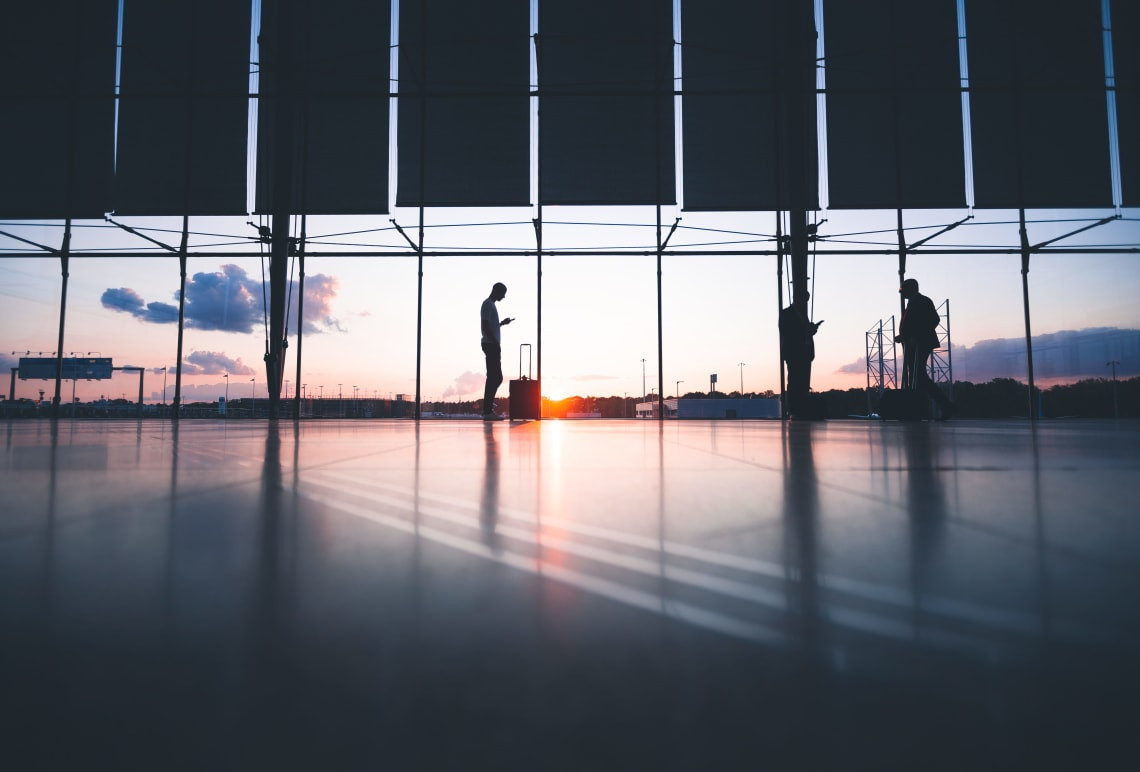Embarking on adventures around the world promises excitement and discovery, but let’s face it, travel isn’t always picture-perfect. Even seasoned globetrotters encounter bumps in the road. Some trips unfold seamlessly, while others present unexpected hurdles. Preparation is your strongest ally, but adaptability and resourcefulness are equally valuable in overcoming travel challenges and truly embracing the journey.
While you can’t foresee every potential hiccup, understanding common Travelling Problems and their solutions can significantly enhance your travel experience. No obstacle is insurmountable with the right mindset and approach.
Let’s explore 10 prevalent travel problems that many travellers face, along with practical strategies to navigate them effectively.
10 Common Travel Problems and How to Solve Them
1. Lost and Found: Mastering Navigation in Unfamiliar Places
 Lost traveler consulting a map
Lost traveler consulting a map
Whether you possess an innate sense of direction or often find yourself turned around, getting lost is a universal travel experience. That unsettling feeling of panic can strike anywhere – from bustling city centres and sprawling airports to serene natural landscapes.
Fortunately, modern technology offers effective solutions for this common travelling problem. While paper maps were once essential travel companions, smartphones now provide powerful navigational tools. Before your trip, download Google Maps or a similar app and, crucially, download offline maps for your destinations. These maps are surprisingly compact, typically ranging from 20 to 50MB, enabling you to navigate even without an internet connection.
Offline maps on your phone are a game-changer for independent exploration, ensuring you can always find your way, even without Wi-Fi or data.
However, technology isn’t infallible. Battery drain can render your phone useless. For a reliable backup, consider carrying a portable charger and a traditional pen and paper. Jot down your destination’s address as a failsafe.
If you do find yourself lost, the most crucial step is to remain calm. Find a safe place to pause, take deep breaths, and orient yourself. Most people are inherently helpful. If you feel comfortable and safe, ask for directions. If language is a barrier, showing a local the written address of your destination can bridge the communication gap. Avoid displaying your phone excessively in unfamiliar areas for safety reasons.
2. Navigating Unsafe Situations: Dealing with Mugging and Theft
 Person being mugged on a street
Person being mugged on a street
While most travel experiences are positive, the unfortunate reality is that petty crime and mugging can occur. Even seasoned travellers can become targets.
Risk levels vary significantly between countries. Before planning your trip, consult your government’s travel advisories for the latest safety information and potential risks. Supplement this with insights from online travel communities and forums to gather first-hand accounts from other travellers.
It’s wise to be informed, but avoid letting fear-mongering dictate your travel decisions. Balance caution with an open mind.
While countless articles offer advice on travel safety tips, knowing how to react during an actual mugging is critical.
The primary advice is: Do not resist. Your safety is paramount. Hand over what is demanded. Material possessions are replaceable; your well-being is not.
Immediately after the incident, report it to the local police. A police report, including a Crime Reference Number, is essential for insurance claims. If you are volunteering with Worldpackers, your host can assist you in locating the nearest police station and overcoming any language barriers.
Beyond the practicalities, address the emotional impact. Experiencing a mugging can be traumatic, leading to feelings of vulnerability, anger, and distrust. It’s normal to feel shaken. Allow yourself time to process these emotions.
Remember, being a victim of crime is not your fault. It’s often opportunistic and random. Avoid self-blame. Acknowledge your feelings, but don’t let a negative experience overshadow the potential for positive encounters. The vast majority of people worldwide are kind and welcoming. Don’t allow a few negative individuals to taint your entire journey.
3. Phone Loss and Digital Disconnection: Managing Without Your Mobile
 Frustrated person searching for their lost phone
Frustrated person searching for their lost phone
Losing your phone might seem trivial compared to other travelling problems, but in our hyper-connected world, it can be surprisingly disruptive. Phones have become indispensable tools for navigation, communication, banking, entertainment, and accessing crucial travel documents.
Experiencing phone theft firsthand in Argentina highlighted just how reliant we’ve become. Suddenly, basic tasks became challenging: checking the time, topping up prepaid cards, finding the nearest police station, informing family, accessing e-tickets, or even using translation apps.
Hostel computers provided limited solutions, often triggering security alerts on online accounts due to unfamiliar login locations. Security protocols, like sending verification codes to your lost phone, become ironically unhelpful.
To mitigate the impact of phone loss, proactive preparation is key:
- Memorize critical passwords: Ensure you can access essential accounts without relying on password managers on your phone.
- Update account details: Before travelling, verify and update recovery email addresses and phone numbers associated with your accounts.
- Establish a backup email: Have a secondary email address readily accessible for receiving security codes and important communications.
Mobile phone theft is a global issue. A new smartphone can represent a significant portion of local income in many destinations, making them attractive targets.
The best preventative measure is vigilance. Avoid openly displaying your phone in public places, especially in crowded areas. Keep it secure and out of sight whenever possible, ideally on your person or locked in a safe place. Common sense and discreet handling can significantly reduce the risk of this common travelling problem.
4. Health Hurdles: Overcoming Sickness on the Road
 Sick traveler in bed with medicine and thermometer
Sick traveler in bed with medicine and thermometer
Staying healthy while travelling is crucial, but various forms of illness can arise.
-
Motion Sickness: This occurs when your inner ear and visual cues send conflicting signals to your brain. Certain modes of transport, like buses, can be particularly triggering. If medication isn’t available, try minimizing sensory input by focusing on a fixed point, like the seat in front of you, and concentrating on slow, deep breaths. Conversely, some find distraction helpful – engaging in conversation, listening to music, or focusing on external scenery. Fresh air and water can also alleviate symptoms.
-
Jet Lag: More than just tiredness, jet lag is a physiological condition caused by disrupting your body’s natural sleep-wake cycle when crossing time zones. Your internal clock becomes misaligned with the local time. To minimize jet lag, try to adjust to the new time zone upon arrival. Engage in physical activity, spend time outdoors in natural light, and avoid excessive alcohol consumption. If arriving at night, opt for relaxing activities like meditation or reading rather than stimulating screens.
-
Insect Bites: From minor irritations to serious health risks, insect bites are a common travel woe. In regions with mosquito-borne illnesses or other biting insects, protective clothing is your first line of defense. Repellent is also essential. If bitten, resist scratching to prevent infection. Carry a quality, non-toxic insect repellent and consider essential oils like tea tree or lavender to soothe itching. Be aware of peak insect activity times, often dawn and dusk, and take extra precautions during these periods. Seek immediate medical attention if you develop any signs of illness after a bite.
-
Sunburn: Even on cloudy days, harmful UV rays can cause sunburn. Check UV levels before heading out and apply broad-spectrum sunscreen with a high SPF 30 minutes before sun exposure, reapplying every two hours, or more frequently after swimming or sweating. Sunburn can be debilitating and have long-term health consequences. If you get burned, aloe vera gel provides soothing relief. Keep the burn cool with cool compresses, but avoid applying ice directly to the skin. Prevention is always preferable to treatment.
-
Food Poisoning: This unwelcome travel companion can strike unexpectedly. Symptoms range from nausea and stomach cramps to vomiting and diarrhea. Pack anti-diarrheal medication for emergencies, but use them sparingly, as diarrhea is the body’s natural way of expelling toxins. Prioritize hydration by drinking plenty of fluids, avoiding dairy and alcohol. Once you start feeling better, begin with easily digestible foods like soups and broths, gradually returning to solid meals. Always carry toilet paper – a seemingly small but crucial travel essential.
5. Language Barriers: Communicating Effectively Without a Shared Tongue
 Traveler using hand gestures to communicate
Traveler using hand gestures to communicate
Navigating a country where you don’t speak the local language is a common travelling problem that can evoke a spectrum of emotions, from frustration and loneliness to determination and ultimately, elation.
While language barriers can initially feel isolating, they can also become catalysts for creativity and connection.
Overcoming language barriers can be a rewarding aspect of travel, fostering resourcefulness and unexpected human connections.
Body language, gestures, and even simple smiles become powerful communication tools. Don’t let a lack of verbal fluency deter you from interacting with locals. Embrace these alternative forms of communication as icebreakers.
Prioritize learning basic phrases in the local language before your trip. Even a few words demonstrate respect and are generally well-received. Numerous language learning apps, guides, and programs are available.
The most effective way to learn a language while travelling is through immersion and practice. Don’t be afraid to speak, even if it’s imperfect. Mistakes are part of the learning process, often leading to laughter and memorable interactions. While some languages are more challenging than others, a lack of fluency is a solvable travel problem with patience and effort.
6. Combating Loneliness: Finding Connection on Solo Journeys
 Lonely traveler sitting alone in a cafe
Lonely traveler sitting alone in a cafe
Loneliness is a travelling problem that doesn’t affect everyone, but when it strikes, it can be profoundly impactful, even for seasoned solo travellers.
There’s no single trigger for travel loneliness. It’s not limited to individuals prone to depression or emotional sensitivity.
Loneliness can unexpectedly arise, regardless of your personality or travel experience, potentially diminishing your enjoyment of the journey.
Be mindful of your emotional state. Sudden shifts in circumstances or a series of minor setbacks can contribute to feelings of isolation. If left unaddressed, these feelings can escalate.
Being away from loved ones for extended periods is a common trigger, but even seemingly small things, like missing a birthday or lacking someone to share special moments with, can accumulate and weigh on your mind.
If loneliness intensifies, the urge to abandon your trip and return to familiar surroundings might become strong. Travel inherently pushes you outside your comfort zone. Without sufficient positive reinforcement, this can feel overwhelming.
There’s no instant cure for loneliness, but human connection is the antidote. Reach out. The adage “You’re never truly alone when you’re travelling” holds true in most situations. Unless you’re in extremely remote wilderness, opportunities for interaction are usually readily available.
Connect with your Worldpackers host or fellow travellers.
Sharing your feelings doesn’t necessarily require deep emotional disclosures. Sometimes, a simple smile, a friendly hug, or sharing a drink with like-minded individuals can significantly lift your spirits.
If these interactions aren’t enough, reach out to the Worldpackers support team. They are experienced travellers who understand the challenges of travel life. They can offer reassurance, support, and practical advice. When you travel with Worldpackers experiences, you are part of a global community and never truly alone.
7. Financial Setbacks: Managing Money and Avoiding Budget Blowouts
 Worried traveler checking their empty wallet
Worried traveler checking their empty wallet
Running out of money is a significant travelling problem that requires careful planning and proactive management.
Unexpected expenses inevitably arise – from broken gear and unforeseen charges to spontaneous plan changes and genuine emergencies. Anticipating every financial contingency is impossible, but preparation is key.
Thorough pre-trip research into the cost of living in your destination is crucial for effective budgeting.
Maximize your savings before you depart and establish an emergency fund that remains untouched unless absolutely necessary. This fund could be a credit card with available credit or a dedicated savings account. Ideally, it should cover the cost of a return flight home in a critical emergency.
Travel can be deceptively expensive. Learn effective strategies for saving money while travelling and consider exploring opportunities to earn money while on the road.
Unless you have substantial savings or are adept at budget travel, travel funds can deplete quickly. The Worldpackers Academy provides valuable resources and creative ideas for generating income while travelling.
For budget-conscious travellers, explore travel hacking tips to maximize your funds and extend your journey.
8. Flight Disruptions: Handling Missed Flights and Travel Delays
 Frustrated traveler at airport information desk
Frustrated traveler at airport information desk
Dealing with a missed flight depends heavily on the reason behind it – whether it was your fault or the airline’s.
If you are responsible for missing your flight, options are limited. The most effective solution to avoid this travelling problem is simple: arrive at the airport with ample time to spare. If you anticipate potential delays, familiarize yourself with the ticket rescheduling policies beforehand. If you do miss your flight due to your own oversight, appealing for assistance is your primary recourse.
Airlines are generally not obligated to assist passengers who miss flights due to personal reasons.
Approach airline staff calmly and respectfully, explaining your situation. Avoid being confrontational or raising your voice. While your emotions may be running high, remember that the staff are simply doing their jobs.
If you can secure a seat on the next available flight, that’s ideal. If not, and a significant delay is anticipated, consider the knock-on effects on your subsequent bookings. If you were heading to a Worldpackers host, inform them of the situation. Similarly, notify any Airbnb hosts, hostels, or tour operators to minimize disruption to your itinerary. Don’t let a missed flight trigger a chain reaction of travel mishaps.
If the missed flight is due to airline issues, you have more recourse.
Regulations vary by country and airline. Engage with airline staff calmly and politely. Airlines may offer compensation, complimentary hotel accommodation, or flight upgrades depending on the circumstances and their policies.
Missing a flight, while inconvenient, is not insurmountable. View it as a learning experience and an opportunity to develop your travel problem-solving skills.
Further reading: 26 Essential Tips for First-Time Travellers
9. Lost Luggage: Coping with Baggage Mishaps
 Traveler waiting at baggage carousel with no luggage
Traveler waiting at baggage carousel with no luggage
Baggage delays or loss is an incredibly frustrating and common travelling problem. You check your bags, receive your boarding pass, enjoy your flight, and then your luggage fails to arrive at your destination.
Experiencing this on a return journey is less disruptive, allowing you to return home and await your bags. However, on an outbound flight, it’s a different scenario.
According to AirfareWatchdog, airlines misplace approximately two bags per 1,000 passengers, including temporarily misplaced luggage. This statistic underscores the prevalence of this issue.
While some airlines have better baggage handling records than others, research can only mitigate risk, not eliminate it. Lost luggage is often unpredictable.
While you can’t guarantee your luggage will arrive flawlessly, you can proactively prepare for potential delays.
Always pack essential items, including a change of clothes and toiletries, in your carry-on luggage. This ensures you have basic necessities readily available if your checked baggage is delayed.
While a luggage mishap is a significant inconvenience, it is manageable.
If your bags don’t arrive, immediately contact airline staff at the baggage claim area to initiate a lost baggage report. Understand their procedures for tracking and delivery. Some airlines deliver misplaced bags to your accommodation, while others require you to collect them from the airport. Before leaving the airport, confirm the exact procedure, ensure they have your contact details and accommodation address, and obtain their contact information for follow-up.
10. Relationship Strain: Navigating Partner Breakups on the Road
 Couple arguing while traveling
Couple arguing while traveling
Relationship breakdowns are a surprisingly common travelling problem. As travel pushes you outside your comfort zone, it can amplify existing stressors and create new ones. This is particularly true when travelling with a partner, be it a romantic partner, friend, or family member.
Living in close proximity 24/7 creates more opportunities for disagreements and friction.
The anticipation of travel is often exhilarating. Planning trips with partners is exciting – envisioning adventures, creating itineraries, and sharing dreams. However, the realities of travel can reveal unforeseen personality traits and differing approaches to problem-solving.
Honest communication and compromise are crucial for successful travel partnerships, but never at the expense of your own well-being.
If you have differing desires about activities or destinations, discuss them openly. Lack of communication is a primary cause of relationship strain, especially during travel.
It may not suit every travel partnership, but consider spending time apart if necessary. A temporary separation could be the solution to rekindle connection and perspective. For romantic partners, radical honesty is key. Address issues as they arise, rather than allowing resentment to build.
Refer to resources like a guide to couple travel for more in-depth advice on navigating relationship dynamics while travelling.
Concluding Thoughts on Common Travel Problems
This overview addresses ten of the most common travelling problems and practical solutions.
Every travel challenge has a resolution. If you travel extensively, you are likely to encounter these and other unexpected situations. However, these potential problems should not deter you from exploring the world.
The benefits of travel far outweigh the occasional inconveniences. Overcoming travelling problems equips you with valuable life skills, making you more resilient, resourceful, and adaptable, both on your journeys and in everyday life back home.
Embrace these ‘problems’ as opportunities for growth, resilience, and enriching your travel experiences.
Happy and safe travels!
